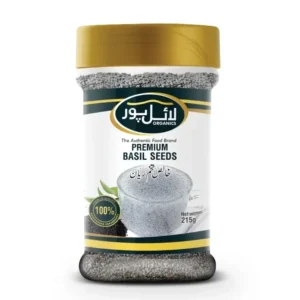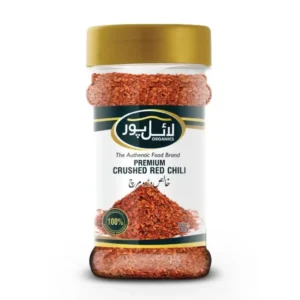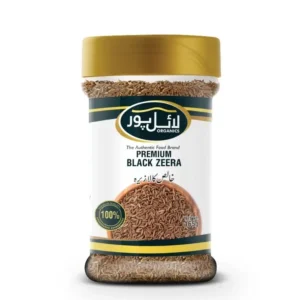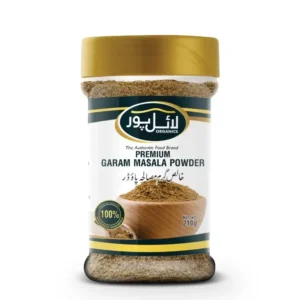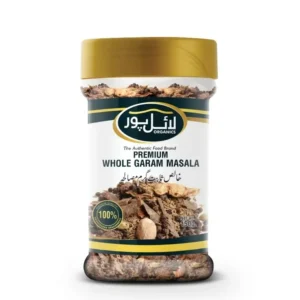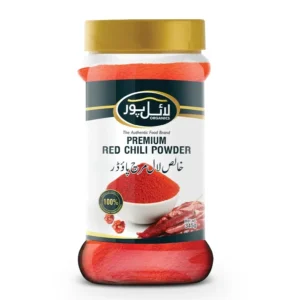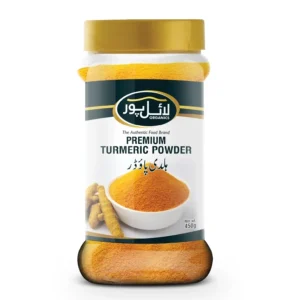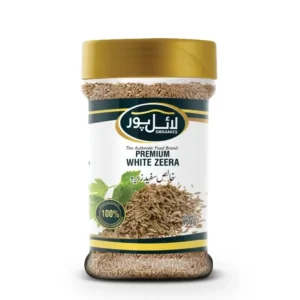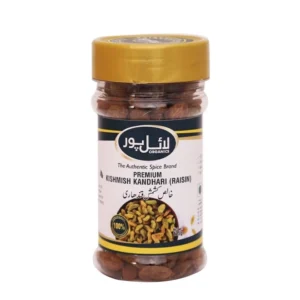Lyallpur Organics Premium Basil Seeds (Tukhm e Rehan) – 100% Natural Organic & Pure | Rich in Nutrients & Fiber | Perfect for Smoothies, Desserts & Health Benefits
Basil seeds, or Tukhm e Rehan, are tiny black seeds from the sweet basil plant. These seeds are often used in Asian and Middle Eastern cuisines. They swell and develop a jellied coating soaked in water, making them famous for drinks and desserts. Basil seeds are known for their cooling properties and are often consumed during the hot summer months to help keep the body cool. They are also packed with essential nutrients, including fiber, vitamins, and minerals, making them a healthy addition to your diet.
History and Origin of Basil Seeds
Basil seeds have a long history dating back thousands of years. They originated in the tropical regions of Southeast Asia and the Indian subcontinent. The seeds have been used in traditional medicine practices in these regions for centuries.
In Ayurveda, they are known for their digestive and anti-inflammatory properties. Over time, their use spread to the Middle East and other parts of the world. Today, basil seeds are enjoyed globally, not only for their health benefits but also for their unique texture and versatility in culinary applications.
In Ayurveda, they are known for their digestive and anti-inflammatory properties. Over time, their use spread to the Middle East and other parts of the world. Today, basil seeds are enjoyed globally, not only for their health benefits but also for their unique texture and versatility in culinary applications.

Top Selling Tukhm e Rehan Products
Nutritional and Health Benefits of Basil Seeds (Tukhm e Rehan)

Packed with Essential Nutrients: These seeds contain vitamins such as Vitamin K, which is vital for bone health and blood clotting. They also have minerals like calcium, magnesium, and iron, essential for various bodily functions.
Hydration: When soaked in water, these seeds form a gel-like substance that helps keep the body hydrated. This is beneficial during hot weather or intense physical activity.
Blood Sugar Regulation: They help to regulate blood sugar levels, making them a good option for people with diabetes.They slow down the metabolism of carbohydrates, which helps prevent spikes in blood sugar.
Improved Digestive Health: The fiber in these seeds supports a healthy digestive system by promoting regular bowel movements and reducing bloating.
Hydration: When soaked in water, these seeds form a gel-like substance that helps keep the body hydrated. This is beneficial during hot weather or intense physical activity.
Blood Sugar Regulation: They help to regulate blood sugar levels, making them a good option for people with diabetes.They slow down the metabolism of carbohydrates, which helps prevent spikes in blood sugar.
Improved Digestive Health: The fiber in these seeds supports a healthy digestive system by promoting regular bowel movements and reducing bloating.
Skin and Hair Health: The antioxidants and anti-inflammatory properties of basil seeds can improve skin and hair health. They help combat acne, reduce signs of aging, and promote healthy hair growth.
Rich in Fiber: They are an excellent source of dietary fiber, which aids in digestion and helps prevent constipation. The high fiber content also promotes a feeling of fullness, aiding weight management.
High in Protein: These seeds provide a good amount of plant-based protein, essential for muscle repair and growth. They are an excellent addition to vegetarian and vegan diets.
Rich in Fiber: They are an excellent source of dietary fiber, which aids in digestion and helps prevent constipation. The high fiber content also promotes a feeling of fullness, aiding weight management.
High in Protein: These seeds provide a good amount of plant-based protein, essential for muscle repair and growth. They are an excellent addition to vegetarian and vegan diets.
Nutritional Composition of Basil Seeds per 100g
Macronutrients
- Calories: 474 kcal
- Carbohydrates: 42 grams (Dietary Fiber: 22.6 grams, Sugars: 0 grams)
- Protein: 19.6 grams
- Fat: 25.1 grams
- Saturated Fat: 2.3 grams
Vitamins
Vitamin A: 527 IU, Vitamin C: 0.6 mg, Vitamin E: 0.8 mg, Vitamin K: 415 mcg
Minerals
- Calcium: 1774 mg
- Iron: 3.17 mg
- Magnesium: 330 mg
- Phosphorus: 274 mg
- Potassium: 1224 mg
- Sodium: 4 mg
- Zinc: 2.23 mg

Different Types of Basil Seeds
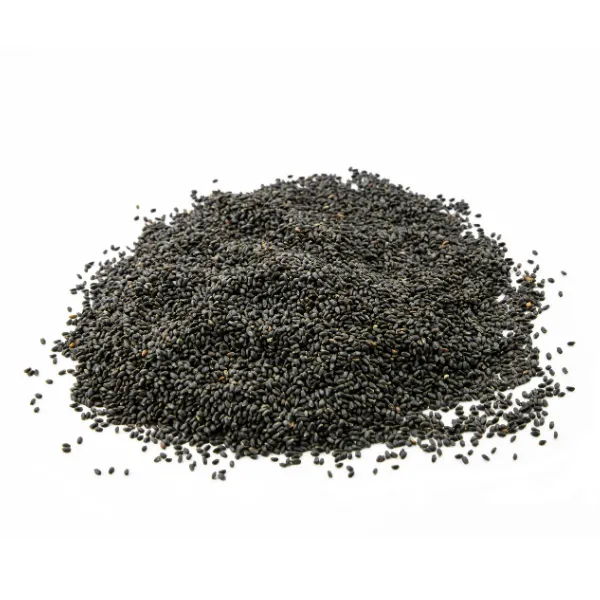
Sweet Seeds
These are the most common basil seeds in culinary applications and health drinks.
Origin: Sweet basil (Ocimum basilicum)
Uses: Often used in drinks, desserts, and traditional medicine.
Origin: Sweet basil (Ocimum basilicum)
Uses: Often used in drinks, desserts, and traditional medicine.

Holy (Tulsi) Seeds
Known as Tulsi in Hindi, holy basil seeds have a slightly different flavor profile.
Origin: Holy basil (Ocimum sanctum)
Uses: Used in herbal remedies, teas, and traditional medicine for their stress-relieving.
Origin: Holy basil (Ocimum sanctum)
Uses: Used in herbal remedies, teas, and traditional medicine for their stress-relieving.
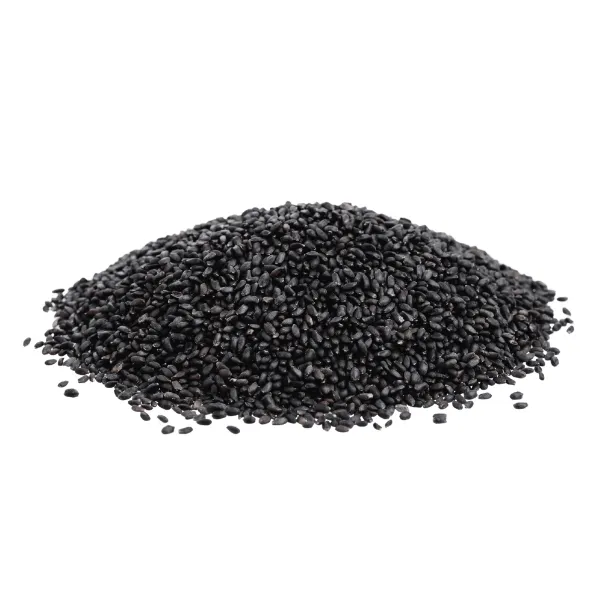
Thai Seeds
These seeds come from Thai basil plants and have a distinctive flavor.
Origin: Ocimum basilicum var. thyrsiflora
Uses: Used in Southeast Asian cuisine, particularly in Thai dishes and beverages.
Origin: Ocimum basilicum var. thyrsiflora
Uses: Used in Southeast Asian cuisine, particularly in Thai dishes and beverages.
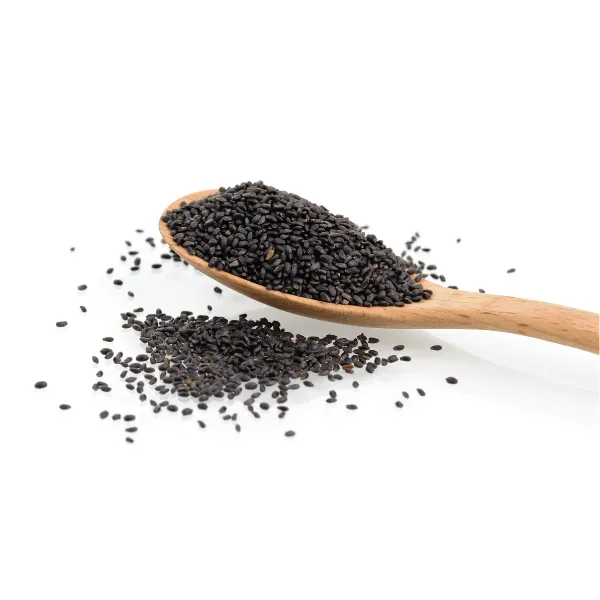
Lemon Seeds
Lemon basil seeds have a slightly lemony flavor, differentiating them from other basil seeds.
Origin: Lemon basil (Ocimum × citriodorum).
Uses: Used in culinary dishes and beverages that benefit from a hint of lemon flavor.
Origin: Lemon basil (Ocimum × citriodorum).
Uses: Used in culinary dishes and beverages that benefit from a hint of lemon flavor.
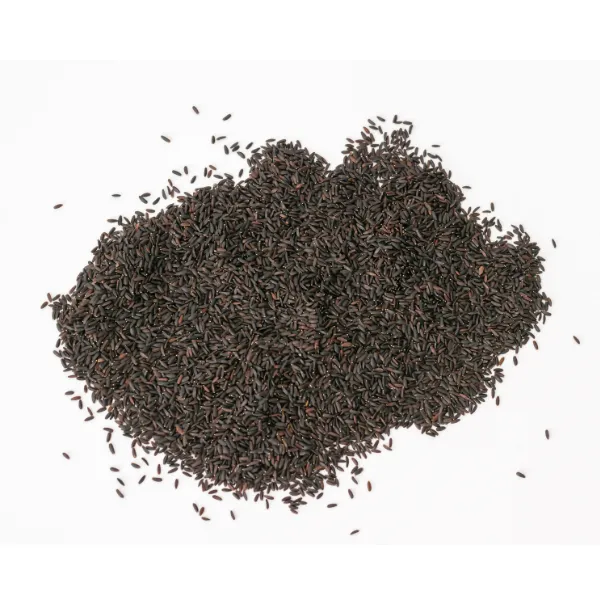
Cinnamon Seeds
These seeds have a mild cinnamon flavor, adding a unique recipe twist.
Origin: Ocimum basilicum ‘Cinnamon’
Uses: Used in desserts, drinks, and savory dishes where a hint of cinnamon is desired.
Origin: Ocimum basilicum ‘Cinnamon’
Uses: Used in desserts, drinks, and savory dishes where a hint of cinnamon is desired.
Different Forms and Uses of Tukhm e Rehan

Whole Seeds
These seeds are raw and unprocessed, known for their ability to swell and form a gelatinous coating when soaked in water. They offer a cooling effect, helping to keep the body incredible during hot weather. Whole basil seeds are commonly used in drinks like falooda, lemonades, and smoothies and in desserts such as puddings and yogurt for added texture and nutrition.

Drink Mixes
They are pre-packaged blends containing basil seeds and flavoring agents, often in a convenient powdered form. These mixes benefit hydration and provide essential nutrients like fiber, vitamins, and minerals. They are easy to prepare, making them a quick and healthy beverage option. Add water or milk to create a nutritious drink with popular flavors, including lemon, honey, and fruit.

Oil
It is extracted from basil seeds and is rich in essential fatty acids, antioxidants, and nutrients. It is excellent for skin health, moisturizing, and reducing inflammation. The oil also contains healthy fats that support overall well-being and can be used in cooking, salad dressings, and as a dietary supplement. Additionally, it is a valuable ingredient in skincare products.
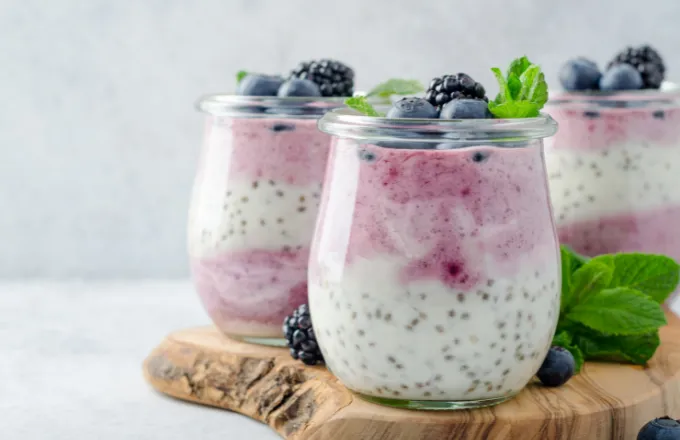
Pudding Mix
It is a pre-made or mixed pudding that includes basil seeds and is available in various flavors. This nutritious dessert option is high in fiber, supporting digestion and weight management. The unique gelatinous texture of basil seeds adds a distinctive quality to the pudding. Popular flavors include vanilla, chocolate, and fruit-based options, making it a delightful and healthy dessert choice.
Basil Seeds in Food and Recipes
Also known as sabja seeds or tukmaria. They have a mild, slightly sweet flavor and a chewy texture. Used in cooking for desserts and beverages. They are a common ingredient in falooda, a popular Indian dessert drink made with milk, rose syrup, vermicelli, and basil seeds. They are also used in various puddings, milk-based beverages, and smoothies.
Pakistani and Subcontinental Recipes
Falooda: This classic dessert drink is a staple during the hot summer months. It consists of milk, rose syrup, vermicelli, and basil seeds. The seeds add a delightful texture and are believed to have a cooling effect on the body.
Rooh Afza: Another popular summer drink, Rooh Afza is a sweet, rose-flavored syrup mixed with water and often garnished with basil seeds.
Sherbet: This sweet, fruity drink is often served during festivals and special occasions. Basil seeds are added to enhance their texture and flavor.
Puddings: Basil seeds are used in milk-based puddings, such as sabja pudding, combined with milk, sugar, and flavorings like cardamom or rose water.
Lassi: This refreshing yogurt-based drink is sometimes enhanced with basil seeds, adding a unique texture and a subtle nutty flavor.
Rooh Afza: Another popular summer drink, Rooh Afza is a sweet, rose-flavored syrup mixed with water and often garnished with basil seeds.
Sherbet: This sweet, fruity drink is often served during festivals and special occasions. Basil seeds are added to enhance their texture and flavor.
Puddings: Basil seeds are used in milk-based puddings, such as sabja pudding, combined with milk, sugar, and flavorings like cardamom or rose water.
Lassi: This refreshing yogurt-based drink is sometimes enhanced with basil seeds, adding a unique texture and a subtle nutty flavor.

Other Top Products By Lyallpur Organics
Buying and Storing Basil Seeds
Basil seeds are a valuable addition to any kitchen. To ensure high-quality seeds, purchase them from reputable suppliers or stores specializing in health foods, spices, or organic products. Look for seeds sold in airtight, moisture-proof packaging to maintain freshness. High-quality basil seeds should be uniform in size and color, typically black and shiny. Avoid discolored, broken, or foul-smelling seeds.

Opt for organic basil seeds when possible for pesticide-free cultivation. Always check the expiration or best-before date for freshness. Proper storage is essential for maintaining quality. After opening the original packaging, transfer the seeds to an airtight container, such as a glass jar with a tight-fitting lid or a food-grade plastic container.
Store in a cool, dry place away from direct sunlight, heat, and moisture. Low humidity is crucial to prevent clumping and mold. For long-term storage, refrigeration is recommended, especially in humid climates. Use an airtight container to protect from moisture and odors. Freezing is another option for extended storage, using a freezer-safe, airtight container or bag to preserve seed quality for up to a year or more.
Store in a cool, dry place away from direct sunlight, heat, and moisture. Low humidity is crucial to prevent clumping and mold. For long-term storage, refrigeration is recommended, especially in humid climates. Use an airtight container to protect from moisture and odors. Freezing is another option for extended storage, using a freezer-safe, airtight container or bag to preserve seed quality for up to a year or more.
Cultivation of Sabja Seeds or Tukmaria
Cultivating basil seeds, or Tukhm e Rehan, begins with selecting the appropriate variety of basil plants, such as sweet basil, holy basil (Tulsi), or lemon basil, each suited to different climates and uses. The process starts by preparing well-drained, fertile soil with a pH between 6.0 and 7.5. Choose a sunny location that receives at least 6-8 hours of direct sunlight daily.
Amend the soil with organic matter like compost or well-rotted manure to improve fertility and drainage. Basil seeds can be started indoors in seed trays or small pots filled with a seed-starting mix or sown directly in the garden after the danger of frost has passed. For indoor planting, sow the seeds about 1/4 inch deep, cover them lightly with soil, and keep them moist. Transplant the seedlings outdoors when they have developed two sets of true leaves, spacing them 12-18 inches apart.
Amend the soil with organic matter like compost or well-rotted manure to improve fertility and drainage. Basil seeds can be started indoors in seed trays or small pots filled with a seed-starting mix or sown directly in the garden after the danger of frost has passed. For indoor planting, sow the seeds about 1/4 inch deep, cover them lightly with soil, and keep them moist. Transplant the seedlings outdoors when they have developed two sets of true leaves, spacing them 12-18 inches apart.

Once planted, basil requires regular care to thrive. Water the plants consistently to keep the soil moist but not waterlogged, and mulch around the plants to retain moisture and suppress weeds. Fertilize every 4-6 weeks with a balanced, water-soluble fertilizer. Pinch off growing tips regularly to encourage bushier growth and prevent flowering, which can make the leaves bitter.
Monitor for pests such as aphids and spider mites, and use organic pest control methods if needed. To prevent fungal diseases, ensure proper spacing and air circulation around the plants and avoid overhead watering. Harvest basil leaves as required, preferably in the morning, for the best flavor, and if growing for seeds, allow some plants to flower and set seed. Once the seed heads mature, cut them off, dry them, and store the seeds for future planting.
Monitor for pests such as aphids and spider mites, and use organic pest control methods if needed. To prevent fungal diseases, ensure proper spacing and air circulation around the plants and avoid overhead watering. Harvest basil leaves as required, preferably in the morning, for the best flavor, and if growing for seeds, allow some plants to flower and set seed. Once the seed heads mature, cut them off, dry them, and store the seeds for future planting.

